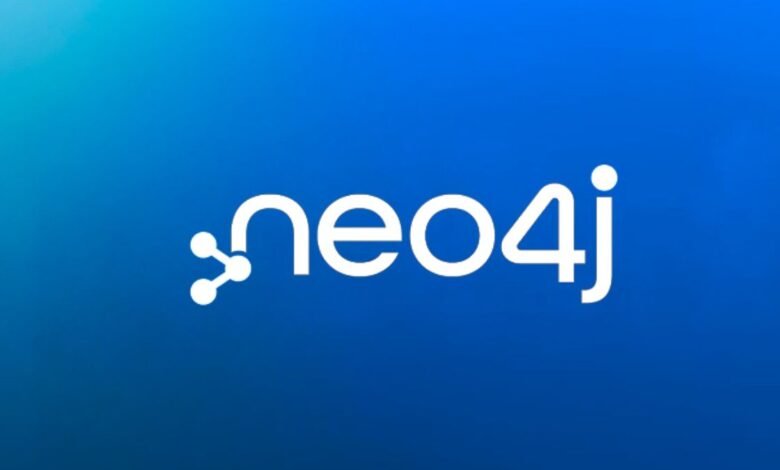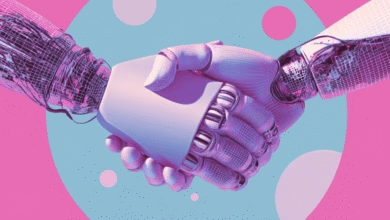Neo4j Pumps $100M Into GenAI, Unveils New Agentic AI Tools

▼ Summary
– Neo4j announced a $100 million investment to accelerate its position as the knowledge layer for generative AI, funding new products and a startup program.
– The company launched two new agentic offerings, Neo4j Aura Agent and Model Context Protocol Server, to simplify building AI agents grounded in enterprise data.
– A new startup program will support over 1,000 AI-native companies worldwide with cloud credits, technical enablement, and go-to-market support.
– Neo4j reported strong growth, including a 6x increase in GenAI customers and surpassing $200 million in revenue in 2024, reflecting enterprise adoption.
– Executive appointments were made, including Sudhir Hasbe as President and Chief Product Officer, to support the company’s expansion and product innovation.
Neo4j has committed a substantial $100 million investment to strengthen its role as the essential knowledge layer for agentic systems and generative AI infrastructure. This strategic move includes launching new agentic AI tools and establishing one of the most extensive startup programs for AI-native companies, aiming to assist over 1,000 startups globally within the next year. This expansion addresses a critical market need, as research indicates that a vast majority of generative AI pilot projects fail to generate returns, often due to insufficient context and memory capabilities.
Enterprises frequently encounter challenges when attempting to transition generative AI from experimental phases to full-scale production. A recent MIT study revealed that 95% of pilots fail to deliver returns, citing issues like poor model quality without proper context and a lack of persistent memory. Neo4j positions itself as the solution to these problems, offering an infrastructure layer that minimizes wasted AI expenditure while ensuring accurate, explainable, and scalable AI implementations.
Emil Eifrem, Co-Founder and CEO of Neo4j, emphasized that agentic systems represent the future of software, requiring contextual reasoning, persistent memory, and traceable outputs—capabilities that graph technology is uniquely equipped to provide. He stated that Neo4j converts disconnected data into actionable knowledge, and this investment will accelerate the realization of that vision.
The company introduced two new offerings designed to simplify the development of AI agents rooted in organizational data. Many businesses struggle with data silos, fragmented tools, and a scarcity of specialized skills when building intelligent agents. Neo4j’s latest products aim to lower these barriers.
Neo4j Aura Agent, currently in early access, allows users to quickly build, test, and deploy AI agents directly connected to their enterprise data. It features end-to-end automated orchestration and AIOps for graph-based knowledge retrieval, with general availability anticipated in the fourth quarter of this year.
The Model Context Protocol (MCP) Server for Neo4j integrates graph-based memory and reasoning into any existing agent or AI application. It supports natural language querying, automatically generates graph data models, ensures memory persistence, and automates the management of Neo4j AuraDB instances. A fully supported version will be released in Q4.
Together, these tools provide enterprises with a reliable and efficient pathway to develop accurate, explainable, and production-ready agentic AI systems.
Conor O’Shea, AI Architect at Daimler Truck, noted that enterprise knowledge graphs serve as critical infrastructure for dependable agentic AI. He expressed enthusiasm for how Neo4j Aura Agent and MCP Server will make these advanced capabilities more accessible to organizations building next-generation intelligent applications.
Nitin Sood, Senior Vice President at QIAGEN, highlighted the potential of Neo4j Aura Agent to revolutionize healthcare by creating comprehensive knowledge graphs from trusted biomedical data. He explained that new methods for querying these graphs could unlock unprecedented approaches to drug discovery and medical research.
Neo4j also unveiled a new Startup Program, which will select and support more than 1,000 AI-native startups worldwide over the next twelve months. Participants will receive cloud credits, technical enablement, and go-to-market assistance to help them develop and scale agentic systems using graph technology.
David Klein, Co-Founder and Managing Partner at One Peak and a Neo4j Board Director, observed that a significant majority of generative AI startups are migrating to Neo4j, recognizing it as the natural choice for building intelligent systems with context and memory.
The program has already enrolled 208 members, including companies like Firework, Garde-Robe, Hyperlinear, Mem0, OKII, Rivio, and Zep. Hala Jalwan, Co-Founder and CEO of Rivio, shared that Neo4j enables her company to accurately model the intricate relationships involved in procurement, covering suppliers, contracts, pricing, compliance, and market dynamics.
To support its growth, Neo4j announced key executive promotions and appointments. Sudhir Hasbe was elevated to President and Chief Product Officer in recognition of his contributions to product innovation and platform expansion. Earlier this year, Mark Woodhams, a veteran from Oracle, joined as Chief Revenue Officer. Additionally, Ajay Singh, formerly of Databricks, was hired as Head of Global Field Engineering to oversee solutions engineering, architecture, professional services, and customer success.
Emil Eifrem stated that these leadership changes, combined with the new investment and product launches, position Neo4j for its next phase as the premier graph intelligence platform for intelligent applications and AI systems.
Neo4j is trusted by 84 of the Fortune 100 companies and more than half of the Fortune 500. It supports autonomous agentic deployments at major organizations like Uber, Walmart, and Klarna, providing the structured memory, relationships, and context necessary for agents to reason, act, and remember—the foundation for production-grade agentic AI.
In the past year, Neo4j has experienced remarkable growth, including a sixfold increase in generative AI customers, a 58% rise in cloud consumption revenue, an 82% growth in product-led growth initiatives, and 56% of its top 100 customers expanding their Neo4j usage in 2025.
Charles Betz, VP Principal Analyst at Forrester, commented in a 2025 blog that enterprises are witnessing a resurgence of continuous learning and improvement at scale, driven by AI, operationalized through agents, structured in graphs, and enriched with live telemetry. He described the graph as essential—the skeleton to the large language model’s flesh.
Neo4j exceeded $200 million in revenue in 2024, demonstrating strong enterprise adoption and the financial stability to support reinvestment at this level. The board-approved $100 million investment reflects both the company’s performance and the conviction that graph technology is foundational for large-scale generative AI production.
Patrick Pichette, Partner at Inovia Capital, former CFO of Google, and Neo4j Board Director, affirmed that Neo4j is revolutionizing how enterprises convert data into knowledge, which is crucial for AI to operate effectively at scale. He expressed confidence that Neo4j is building a generational company with the leadership, market traction, and technology to lead in the agentic AI space.
Neo4j serves as the graph intelligence platform that transforms data into knowledge, powering the next wave of intelligent applications and AI systems. It offers enterprise-ready knowledge graphs for accurate, explainable, and governed AI, along with comprehensive, trusted, and easily deployable graph capabilities across diverse environments and data sources. Supported by the world’s largest graph community, Neo4j is relied upon by the majority of Fortune 100 companies.
(Source: ITWire Australia)




